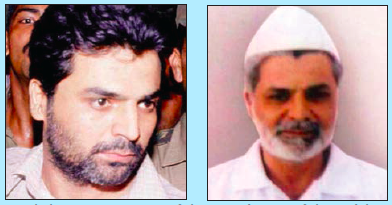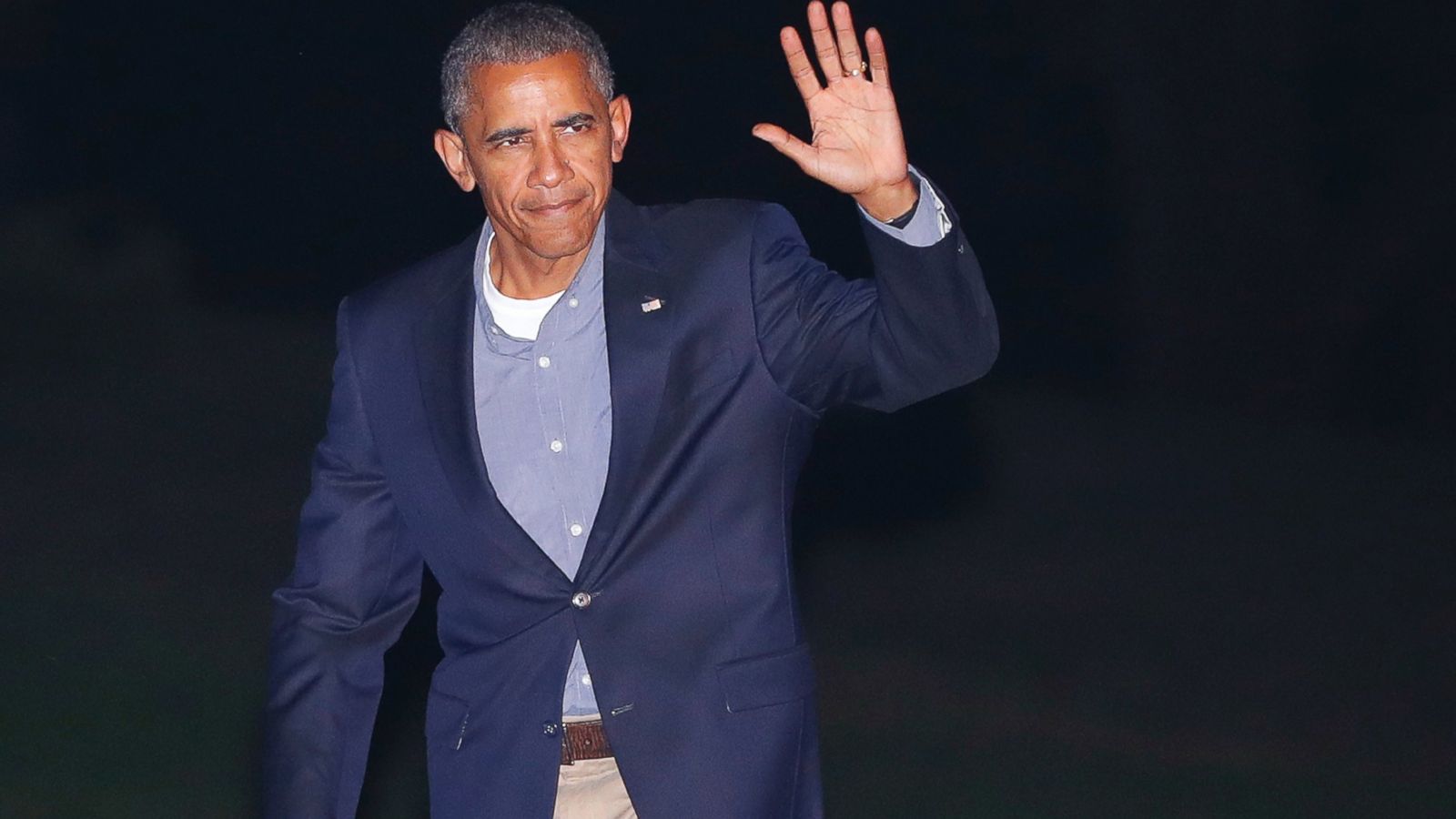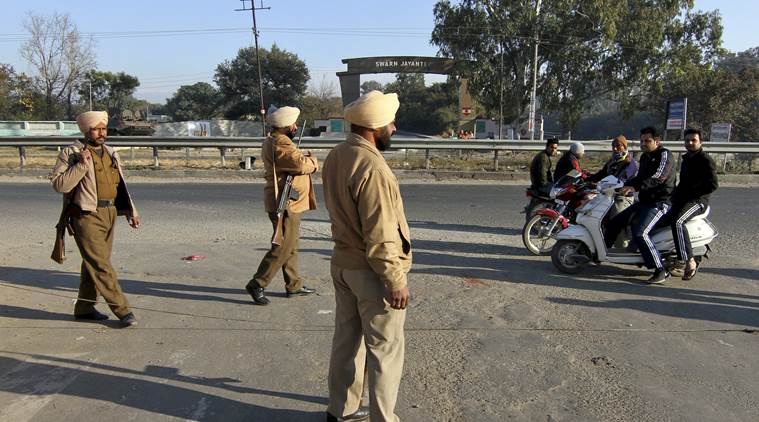
NEW DELHI (TIP): The two burials on Thursday July 30 represented the spectrum of what is the best and the worst of India. Millions mourned the death of one of the country’s favourite sons, former President APJ Abdul Kalam, as his body was laid to rest in his hometown Rameshwaram. On the other hand few shed any tear on the death of one of the conspirators of the Mumbai serial terror attacks of Mumbai Yakub Memon who was hanged early morning and his body interned in a graveyard in the City where a series of blasts ripped through Mumbai on March 12, 1993, killing 350 people and injuring 1200.
With Yakub Memon’s execution in the early hours of Thursday morning at Nagpur jail, there may be some closure for the families of the victims but they would rather also see the same fate as Yakub for his brother Tiger Memon and the brain behind the conspiracy Dawood Ibrahim, both reportedly under protection in Pakistan.
Yakub Memon was hanged in the Nagpur jail after a prolonged legal drama which lasted till early morning hours of his hanging. In fact in an unprecedented move, a bench of the Supreme Court was convened at 3 am following a plea to defer the hanging. The three member bench heard arguments that the President cannot reject a mercy petition at a short notice and also that Yakub had the right to file another mercy petition. However the arguments were contested by the government which said that the death row convict had exhausted all avenues of appeal. The court concurred with its arguments and said that a stay on the execution would be “travesty of justice”.
 Within one and a half hour of the verdict Yakoob Memon was hanged in Nagpur and his body handed over to his family members. It was later flown to Mumbai and buried amidst tight security ironically what happened to be his 53rd birthday.
Within one and a half hour of the verdict Yakoob Memon was hanged in Nagpur and his body handed over to his family members. It was later flown to Mumbai and buried amidst tight security ironically what happened to be his 53rd birthday.
Yakub had allegedly handled Tiger’s funds and funded the training of 15 youths whom he sent to Pakistan to learn the art of handling arms and ammunition.
While Yakub, along with other members of the Memon family had left the country just before and after the 1993 blasts, according to the Central Bureau of Investigation (CBI), Yakub later returned. The claims about the purpose of his return are contentious, but he was formally arrested on August 5, 1994, from New Delhi.
Yakub was charged on July 27, 2007, under the Terrorist and Disruptive Activities Act (TADA) and Section 120-b of the IPC with criminal conspiracy, aiding and abetting and facilitating a terrorist act, arranging funds and vehicles, for planting bombs and possessing detonators and hand grenades that had been used in the 1993 serial blasts.
Born on 30 July 1962 in Bombay, Yaqub was raised in Byculla. After completing his schooling from a prominent English medium school, Memon went on to complete his Commerce degree from the Burhani College of Commerce and Arts. In 1986, Memon enrolled into the Institute of Chartered Accountants of India, and four years later in 1990, he successfully graduated as a chartered accountant.
Yakub Memon became the third terror convict to have been sent to the gallows in the last four years.
Earlier, Ajmal Kasab, the sole Pakistani gunman involved in the 26/11 Mumbai terror attacks to have been captured alive, was hanged to death at the Yerwada central prison in Pune on November 21, 2012.
He was among the 10 Pakistani Lashkar-e-Taiba terrorists who had descended on Mumbai on November 26, 2008 and had killed 166 people, including some foreigners. Nine of the perpetrators were killed during the 60-hour siege and Kasab was captured alive.
The Timeline
In what was an unprecedented turn of events, the Supreme Court of India opened the doors of Court Room Number 4 at 3 am on Thursday to hear a fresh mercy plea by a battery of lawyers representing a convicted terrorist in the 1993 Mumbai serial blast case, Yakub Abdul Razak Memon. Two hours later his fate was sealed.
The story goes back to Tuesday. In the light of a disagreement between a two judge bench hearing the case to stay Yakub Memon’s execution on July 30, Supreme Court Chief Justice HL Dattu constituted a larger bench of Justice Dipak Misra, Prafulla C Pant and Amitava Roy to discuss Memon’s plea again.
The next day, one day before his slated hanging of Yakub Memon filed a fresh mercy plea with the President of India at 11 am. The same day at 4.30 pm, a three member bench of the Supreme Court dismissed his petition and at 5.30 pm, the mercy petition filed with the President is sent to the Union Home Ministry as per the usual procedure. Yet another mercy petition filed by him before the Maharashtra Governor is also rejected.
At 9 pm, union Home Minister Rajnath Singh personally takes the file and goes to meet President Pranab Mukherjee to discuss the mercy plea. This meeting is also attended by Home Secretary L C Goyal and Solicitor General Ranjit Kumar.
At 11 pm, President Pranab Mukherjee rejects the mercy plea. This paved the way for Yakub Memon to hang at 7 am at the Nagpur Jail.
The Midnight Drama
The drama, however, didn’t end there. In a dramatic turn of events, Yakub Memon moves the Supreme Court again, his lawyers urging the President to not take a decision overnight.
Several lawyers including Prashant Bhushan, Anand Grover, Vrinda Grover, Nitya Ramakrishnan and Yug Choudhary representing Yakub Memon reached the residence of CJI Dattu seeking a stay on the execution. Citing a Supreme Court judgment in the Shatrughan Chouhan VS Union of India case, a fresh petition was filed with the CJI seeking at least a 14 day clear gap between the rejection of mercy petition of the convict and the hanging. The registrar of the Supreme Court also reached the CJI’s residence and in an unprecedented and remarkable move, the CJI agreed to hear the plea that very night.
He constituted a three member bench which had earlier in the day rejected the plea. Perhaps for the first time ever a court room in the Supreme Court was opened at 3 am to hear the plea.
At 3 am, Attorney General Mukul Rohatgi entered court room no.4 and the hearing began. Yakub Memon’s lawyers argued that the earlier mercy plea was filed by his brother, today’s plea was his own. Since the plea has been rejected today, the mandated 14 day period before the hanging must begin today. The Attorney General stressed that multiple mercy petitions were an abuse of the system.
The bench finally dismissed the petition around 5 am and Yakub Menon was hanged les than an hour and a half later at Nagpur this closing a sad chapter in the history of the country.





Be the first to comment